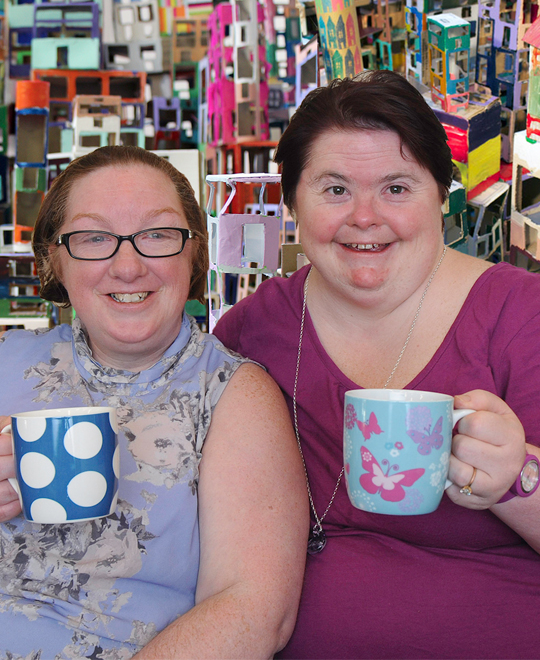Studio 30
The Co-Housing Challenge: Choice Control Participation Inclusion
Andrew Martel

Studio Description
This studio will explore how a co-housing or intentional community model of housing development may help people with intellectual disabilities integrate physically and socially into the community.
It is common for people with an intellectual disability live at home with their parents as primary care givers. As they approach middle-age and beyond, there is considerable stress on their elderly parents who worry about who will look after their dependent children when they have died. Many other people with intellectual disabilities are congregated together and segregated into group homes. There are more than 1,000 such places, known as Community Residential Units (CRU’s) in Victoria alone. It is widely accepted that CRU’s are expensive to construct, expensive to staff and generally inhibit the independence and connection to the community of the residents.
There are a number of international examples of intentional communities that incorporate people with intellectual disability, however in Melbourne existing co-housing models such as Murundaka and Urban Coup do not include specific provisions for members with a disability.
Studio Outcomes
The studio will use two sites currently being considered for development of co-housing by Araluen (see below) in Greensborough and Preston. The design will involve medium density housing of up to 6 storeys and include apartments for private sale, larger supported apartments where people with a disability can live with a co-hosting family, and independent living units for people with an intellectual disability. As with other co-housing models, the designs will also include extensive communal areas for shared eating, working, and socialising by the members of the housing community.
At the end of the studio, students will have developed an understanding of the way that the built environment impacts on people with a disability, and recognise the enormous benefits that thoughtful and inclusive design can bring to people’s lives.
Studio Leader
Dr Andrew Martel is a lecturer in Architecture and Construction at Melbourne University. He is a housing researcher and has run a number of design studios involving student housing, remote Indigenous housing, and affordable family-friendly housing. His most recent studios have focused on designing thoughtful and appropriate housing for people with disabilities.
The industry partner, Araluen, is a leading support service provider for adults with intellectual disabilities in Melbourne’s north-east suburbs.
Over the last decade Araluen has been exploring community integrated models of supporting adults with intellectual disabilities. This has included two overseas study tours and the documenting of 27 models of people with intellectual disabilities living in the community. These models have been packaged into a housing roadshow that is delivered to carers groups. As a result, Araluen is seen a leader in pioneering quality housing outcomes outside of traditional CRU’s.
ST1/30 Mondays 12:00-15:00 in MSD Room 239
ST2/30 Thursdays 12:00-15:00 in MSD Room 239